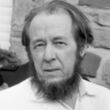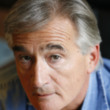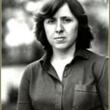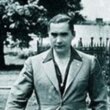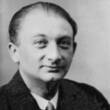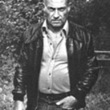Stalingrad
Description
More Details
Chandler, Elizabeth Translator
Chandler, Elizabeth,1947- translator
Chandler, Robert Translator
Chandler, Robert,1953- editor, translator
9798350848076
9781681373287
Similar Series From Novelist
Similar Titles From NoveList
Similar Authors From NoveList
Published Reviews
Publisher's Weekly Review
Grossman's epic, sprawling novel from 1952 is a masterpiece of intertwined plots that cascade together in a long sequence of militaristic horror. Grossman (1905-1964), best known for this book's sequel, Life and Fate, was on the scene as a Soviet war reporter during WWII's Nazi siege of Stalingrad, and the novel teems with his firsthand observations. The action is told from dozens of perspectives, ranging from humble workers to Hitler himself. Most of the characters have some relationship to Stalingrad's Shaposhnikov family. After an opening dinner party, the Shaposhnikovs are separated by a war that has drawn ever nearer to their city. Alexandra, the family matriarch, is forced into exile with her oldest daughter, Ludmila. Ludmila's husband, Viktor Shtrum, an important scientist, is worried that his Jewish mother has been a victim of the Holocaust. Alexandra's second daughter, Marusya, and her daughter, Vera, display heroism in their wartime work in an orphanage and a hospital. The beautiful Zhenya, Alexandra's youngest daughter, has left Nikolay Krymov, a communist thinker, and is being courted by Pyotr Novikov, a gifted military strategist. Two of the family's grandchildren, Tolya and Seryozha, are in military units defending the city. When the bombing of Stalingrad begins, Grossman cuts between viewpoints, rewinding time over and over again. A spectacular afterword details the extent of censorship the text suffered under Stalin. As a stand-alone novel, this is both gripping and enlightening, a tour de force. When considered as a whole with Life and Fate, this diptych is one of the landmark accomplishments of 20th-century literature. (June) © Copyright PWxyz, LLC. All rights reserved.
Kirkus Book Review
An extraordinary novel by war correspondent Grossman (1905-1964), completing, with Life and Fate, a two-volume Soviet-era rejoinder to War and Peace.Improbably, Grossman survived the purges of the Stalin era even though the dictator's gaze often fell on him. Toward the end of Stalin's life, Grossman set to work on the pair of books that would recount what Russians call the Great Patriotic War. His characters come from both sides of the battle and include a German lieutenant who crosses the Don River with his company in triumph but, by the end of the cycle, comes to understand the error of his ways. Grossman's great subject, in his fiction as well as his reportage, was the terrible nature of totalitarianism. His characters are given to saying things that in the wrong ears could land them in trouble, as when an officious commissar insists that a neighborhood bomb shelter is meant to save people like him, to which a woman, hiding from the shelling, replies, "The fat bruteanyone would think he's a German. He thinks Hitler's here already. But we're Soviet citizens. We're all equal. He's the one who should be thrown out to dienot our children!" Soldiers, nurses, schoolteachers: All wither under the months of street-by-street fighting, as do the refugees who flood in from the surrounding countryside, having "heard the roar of the approaching avalanche." For them and millions of others, Grossman writes in a burst of poetry toward the end of the volume, the "fire of Stalingrad was the fire of Prometheus," promising undying resistance to fascism even as the great fish in the Volga hug the riverbanks, hoping to keep safe from the rain of metal, and the ants, mice, bees, and other tiny creatures of the Soviet earth try to accustom themselves to "the earth's constant trembling."A classic of wartime literature finally available in a comprehensive English translation that will introduce new readers to a remarkable writer. Copyright Kirkus Reviews, used with permission.
PW Annex Reviews
Grossman's epic, sprawling novel from 1952 is a masterpiece of intertwined plots that cascade together in a long sequence of militaristic horror. Grossman (1905–1964), best known for this book's sequel, Life and Fate, was on the scene as a Soviet war reporter during WWII's Nazi siege of Stalingrad, and the novel teems with his firsthand observations. The action is told from dozens of perspectives, ranging from humble workers to Hitler himself. Most of the characters have some relationship to Stalingrad's Shaposhnikov family. After an opening dinner party, the Shaposhnikovs are separated by a war that has drawn ever nearer to their city. Alexandra, the family matriarch, is forced into exile with her oldest daughter, Ludmila. Ludmila's husband, Viktor Shtrum, an important scientist, is worried that his Jewish mother has been a victim of the Holocaust. Alexandra's second daughter, Marusya, and her daughter, Vera, display heroism in their wartime work in an orphanage and a hospital. The beautiful Zhenya, Alexandra's youngest daughter, has left Nikolay Krymov, a communist thinker, and is being courted by Pyotr Novikov, a gifted military strategist. Two of the family's grandchildren, Tolya and Seryozha, are in military units defending the city. When the bombing of Stalingrad begins, Grossman cuts between viewpoints, rewinding time over and over again. A spectacular afterword details the extent of censorship the text suffered under Stalin. As a stand-alone novel, this is both gripping and enlightening, a tour de force. When considered as a whole with Life and Fate, this diptych is one of the landmark accomplishments of 20th-century literature. (June)
Copyright 2019 Publishers Weekly Annex.


























